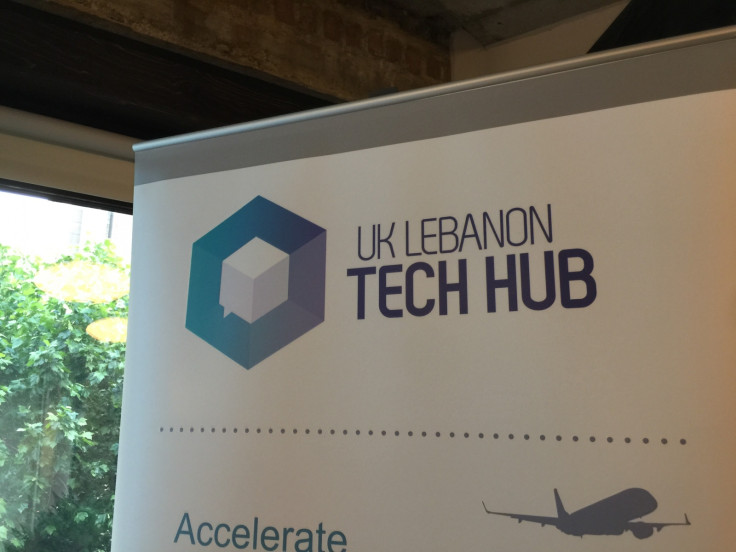Brand Lebanon poisoned by Isis and Syria is holding back Beirut's tech entrepreneurs

The war in Syria, the rise of Islamic State (Isis) and political in-fighting have all led to Brand Lebanon being poisoned and limiting the potential for growth of tech startups in the Middle Eastern country.
This is the view of one Lebanese entrepreneur who travelled to London for the launch of the UK Lebanon Tech Hub in the hope he and his compatriots will be able to piggy-back on the positive press London's Tech City (also known as Silicon Roundabout) is getting.
The Lebanon Tech Hub, based near Liverpool Street station, is the result of a partnership between Lebanon's Central Bank and the UK government and aims to connect Lebanese companies with investors and businesspeople in the UK.
Elie Boujaoude was part of the initial mission of companies to visit the UK capital during London Technology Week and while many of his compatriots may be looking for investment or even an acquisition, he is looking for something else.
His company is called Bnooki, described as the Beirut equivalent of moneysupermarket.com and offers a price comparison service for the products and services of Lebanese banks.
Boujaoude said the reason he wanted to come to the UK was because "this industry was born in London" and he wants to speak to influential leaders in this area.
The entrepreneur said raising capital was not a problem for him since the launch of the Lebanese Central Bank's Circular 331 initiative, which promises to put over £250m into the local startup economy.
The Silicon Valley of the Middle East
Indeed from the outside, Lebanon seems to be perfectly suited for a thriving tech startup economy.
A vibrant entrepreneur culture, venture capital funds, an excellent education system and innovative startups all point to a self-sustaining and healthy business environment. Lebanon was even connected to the superfast India-Middle East-Western Europe (IMEWE) maritime cable in 2011 to vastly improve internet speeds.
Add to this the potential for anywhere up to £375bn of oil money that could soon flow into the economy and we could see Lebanon emerge as a challenger to Israel as the Silicon Valley of the Middle East.
This simply shows the potential for Lebanon, though, with major sociopolitical problems holding the country back.
Vacuum
The most obvious problem is the unstable political situation in a country that is fighting IS in the north of the country while a presidential vacuum has led to in-fighting among the two main political blocs leading to the lucrative oil deal being delayed.
The superfast IMEWE internet cable is also failing to deliver on its promises, with just 10% of capacity being exploited.
But despite these problems, Boujaoude says "internal politics and slow internet are the least of my problems".
The big issue as he sees it is Brand Lebanon, which in the past three years has significantly impacted his and the ability of other entrepreneurs to grow and do business.
Brand Lebanon has been significantly impacted by the turmoil on its doorstep, first with the Syrian conflict and more recently the rise of IS in the region, and Boujaoude says it is hard for customers and investors to look past this.
The Lebanon brand during the 1960s and 1970s was a major advantage for companies doing business around the world, as the country was seen as the most liberal and cultured of the Middle Eastern nations – something it can no longer rely on.
Lack of R&D
Another problem for companies such as Bnooki is the inability to source employees with the right skills and experience. Lebanon is renowned as having one of the best educational system in the Arab world, with Beirut alone having 18 universities/tech campuses.
But Boujaoude says the focus of the curricula on courses run at these institutions is misguided and needs to change to suit the needs of the modern world. He adds that there is emphasis on research and development at third-level institutions, which limits the number of innovative products and companies being established in the country.
And so the establishment of the Lebanon Tech Hub in the heart of Tech City is a way of indirectly leveraging the London brand to help rebuild the profile of the Middle Eastern country in the eyes of the outside world.
Boujaoude says the company has made mistakes in Lebanon but does not want to repeat them when expanding into other countries so is looking to London tech entrepreneurs for advice – both business and operational.
Hopeful future
Despite the challenges he and his compatriots face, Boujaoude is bullish about the products and services on offer from Lebanese firms, saying that what he has seen in London is "not out of our reach in terms of innovation".
Christopher Schroeder, a Washington-based entrepreneur and investor, whose latest book Startup Rising shines a light on the incredible startups being cultivated in the turbulent Islamic world, is also positive about Lebanon's future:
He said: "Lebanon and the region has challenges that are not unfamiliar to emerging growth markets historically and around the world — rule of law, the youth bulge that need jobs, political unrest, need for higher quality education that prepares kids for the 21st century. But like everywhere, the new generation has unprecedented tools in their hands at ever greater scale and some remarkable talent. I am very hopeful."
© Copyright IBTimes 2024. All rights reserved.






